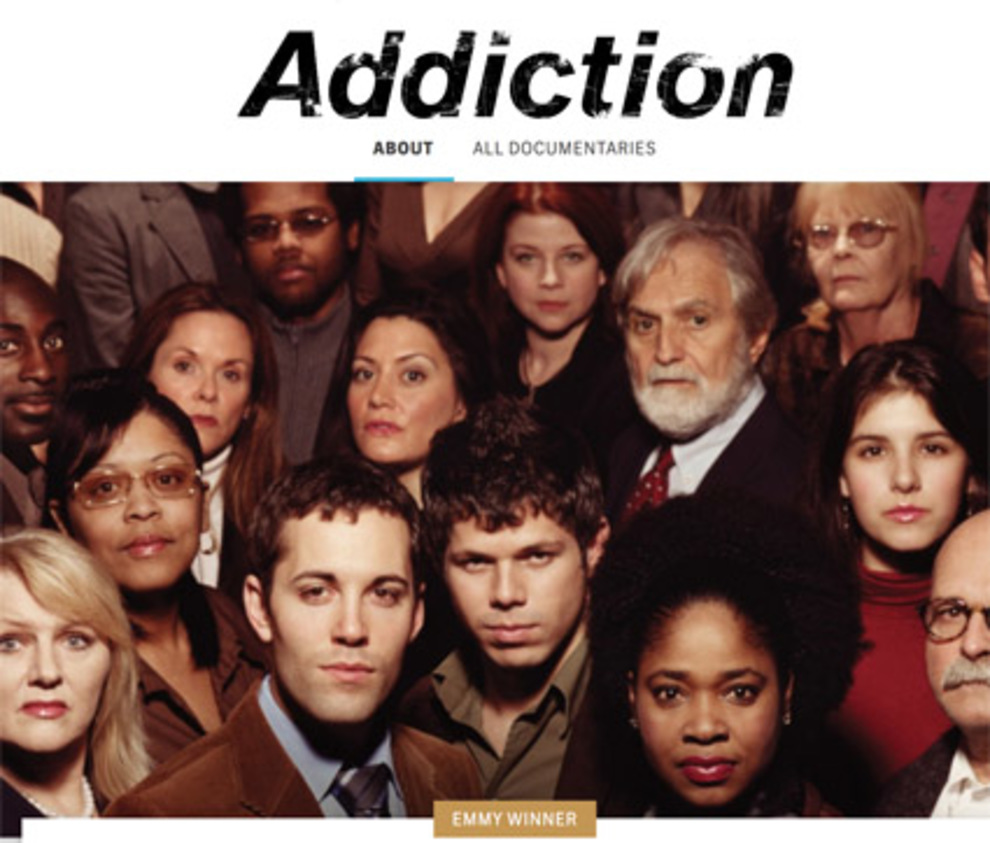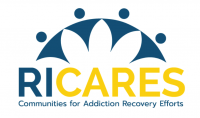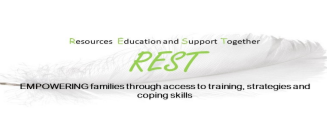It’s Okay Not to Have Hope – I Was There Too – but Hopelessness led me to Hope, and Success

An Allies member is struggling to believe that her loved one might ever get better. All the recovery talk sounds lovely, but it doesn’t feel realistic for her family. Laurie MacDougall shares here about how hopeless she also felt and how it surprisingly pushed her in the right direction.
with Louise Stillman, MSc, Editor
This question originally appeared on the Allies in Recovery Member Discussion Blog, where experts respond to members’ real-life questions and concerns.
Good morning. I am really struggling with hopelessness and self-blame for my son’s struggles, and yes, I know the slogan. It doesn’t help. I also can’t seem to envision a life for him with friends that practice abstinence. It seems impossible for a young person to build an entirely new life leaving all his childhood friends and most of our family behind. While it sounds lovely, I am just having a really hard time with how that’s really going to happen. One day at a time…”
Is losing hope a crime? Or is it okay not to have hope?
Dear Alliesinrecovery.net member,
I have to tell you: I really understand feelings of hopelessness when it comes to dealing with Substance Use Disorder (SUD). I also remember that often, when I told people I was feeling this way, they took it upon themselves to try and convince me that I needed to have hope. People would go to great lengths about how there was “always hope,” and/or how “I should NEVER EVER give up hope”. People were often invested in trying to persuade me that I was wrong.
One time, I confided in my primary care physician and she actually started yelling at me, “I DISAGREE with you, there is ALWAYS hope!” and I walked out of that office feeling worse than when I first walked in. It almost made me believe that losing hope was a crime and that I had no right to feel this way. Well, I am not going to try and change your mind. You are allowed to have no hope. Those are your feelings right now during this trying time, and that is perfectly okay.
It takes greater strength to process your feelings than to pretend everything is fine
One thing I learned on my journey was that difficult feelings and thoughts are all a part of life. Being human is all-encompassing. When life is working well, we feel and think positively. When life is complicated and awful, as when impacted by SUD, thoughts and emotions tend to spiral down. It’s par for the course.
While having difficult feelings like anger, frustration and hopelessness may lead one to feel ultimately worse, it can also have a positive side. Sometimes, it can motivate us to change for the better and can launch us in a new direction that we never thought possible.
I was stuck in something I now call “this or that thinking”
We get stuck in the “if it’s not this way, then it has to be that way.” Also, when dealing with my son’s SUD, that was the message I was getting from the treatment industry: he either had to give up everything in his in life — his friends, any family members that were a bad influence, all use of any substances, etc. — or he was never going to get better.
He had to attend a residential treatment, to then go to a recovery home and never come back home because we are toxic. He had to attend meetings, create a new community for himself, learn better coping skills, couldn’t have love relationships, and never ever lapse. The list goes on and the pressure is high.
What the world expected of him was very specific and I was buying into it as well. Anytime he wasn’t living up to these expectations, I became anxiety-ridden, depressed and convinced recovery would never happen.
This is an example of what I call pie in the sky hope. I had unrealistic expectations for my loved one and was convinced he needed to do everything right all the time — never miss a meeting and never go off track. When he didn’t meet these expectations, it inevitably led me crashing down into hopelessness.
It was during these times of hopelessness that I usually had small revelations
I handled these moments by letting the feelings and thoughts flood in. I sometimes would even let them take hold for a while — it would often take days or even weeks. Not fighting them, just letting them be, gave me time to process things. Once the clouds started to part, I found that weighing what I was hopeful for, versus not hopeful for, was helpful. I call it Realistic Hope. Not “pie in the sky hope,” not “empty of all hope,” just realistic hope that helped me align my hopes for my loved one with realistic expectations.
Recovery isn’t one size fits all, it’s different for everyone
This experience helped me broaden my way of thinking about what recovery for my loved one might look like, and what my role would be. I hear you when you say, “I also can’t seem to envision a life for him with friends that practice abstinence. It seems impossible for a young person to build an entirely new life leaving all his childhood friends and most of our family behind.”
Could you put these expectations for your loved one aside for now? Instead, what about listing out all the possibilities that are open to your loved one and seeing if you can identify anything he is doing or wishes to do that would steer him in a positive direction? Could you then focus on supporting those options?
The list might look like this:
· Join a sports team (there are even non-drinking teams.)
· Enter a competition at the gym or take a “10-day Energy” challenge
· Chorus
· Internship in something that interests him
· Volunteer to distribute to the homeless or at a soup kitchen
· Join a hiking group
· Volunteer at an animal shelter
· Detox
· Counseling
· Trying to stop use at home
· Trying to reduce use
· Meetings, online or not: AA, NA, Refuge Recovery, Life-Ring, etc.
· Group counseling
· Involvement in a religious/spiritual practice
· Attend a place of worship
· Intensive outpatient
· Medically-Assisted Treatment
· Recovery home
· Residential treatment (this could be 30 or 90 days or even as long as a year)
· Support with managing money
· Family counseling
· Recovery coach
· Psychiatric meds
· Treatment for mental illness
· Relapse prevention programs
· Recovery community centers
· Exercising
The list can be much longer than this, but I think this would be a good start. Then you could go through the list and determine what your loved one is already doing, what he might consider in the future and what may seem like an impossibility in this moment (what is impossible today won’t necessarily be impossible a few months from now). If there is one or a few of these things your son is already engaged in, this is really positive.
He might also have talked about, or have been involved in, similar activities in the past without having succeeded at keeping them up. I know how tempting it is to perceive this as a failure but, in our book, it’s also incredibly hopeful. It means he HAS experienced motivation for change; it means he knows there ARE other ways.
Your influence lies in how you reward your loved one’s attempts at sobriety
Recovery activities or even the smallest baby steps towards change allow you to have some impact and influence. Anytime you see a behavior you would like to see him repeat, reward it. Some of the best rewards are those that promote connection and strengthen relationships.
Rewarding can sound something like this:
“I know it can be a struggle because of transportation, and yet you really have been consistent with your appointments with your recovery coach. How about I pick you up after your next meeting and we grab a bite to eat?” or
“I noticed you really have been putting in a lot of effort to reduce your pot smoking, that cannot be easy, and I’m very proud of your efforts. I know you love playing your video game, can I challenge you to a game?”
Validating how difficult the task is, while supporting his efforts can really reinforce positive behavior. The words themselves are a reward and the added incentive of food and/or quality time spent together only reinforces the reward. With this type of statement, you are combining actions that strengthen your relationship, as well as supporting your loved one’s recovery work.
He’s not ready for any of this? Take this time to train yourself to respond appropriately to the wishes and dips you’ll hear…
He may not be engaging in anything right now but that gives you time to start working on communication skills with the help of Alliesinrecovery.net Module 4, and on listening for a wish or a dip. Our Module 8 lays out how to identify wishes and dips, and what to do when you do hear one.
A dip might sound something like:
Son: “I can’t live like this anymore!”
Mom: “Sounds frustrating. I have some options that might help. Can I share them with you?”
A wish might sound like:
Son: “I wish I could get myself back in school.”
Mom: “You’re interested in going back to school. What could you do to make this happen? Is there anything I can do that might help?”
This approach will help manage expectations of what your loved one can accomplish, and break them down into smaller steps. Helping your son replace lofty goals that would usually set him up for failure by some more realistic goals, can nurture his conviction that he can and will be successful.
There are many different paths to a better life
It helped me to move from hopelessness to realistic hope. I also started to notice positive behavior in my loved one that I had not noticed before. It gave me some sense of satisfaction: I was becoming a positive influence in my son’s life. My view of what recovery looked like was changing and I started to realize that there were so many different paths to a better life. It wasn’t “this or that” anymore. Instead, it became “whatever works”.
I would also caution you to not throw away options that you cannot see your loved one engaging in right now. We do not know what the future holds, these options may start to feel more realistic as your son keeps evolving.
He may not leave his childhood friends or family members to live a life of sobriety, but there may be other alternatives. He may just need some time away from them in early recovery, but then, as he gains strength, he could start spending time with them again. Or maybe he starts acting more strategically and only spends time with them when there is no use.
I focused on reducing triggers and supporting his efforts
When my son first came home and was very early in recovery, I let other family members know there would be no drinking at my house for the time being.
Even though alcohol was not the substance he was misusing, I realized that the social aspect of drinking could be an issue. It could put him in a position to feel marginalized and restricted, whereas having all family members stay sober could, conversely, allow for him to feel loved and supported.
I was the one hosting all holidays in our family (we could write another full blog post about navigating the holidays with a loved one struggling with SUD) and it was tough to make this call. Yet, I let family members know that I would not be insulted if they did not want to be there, but that my son’s recovery was most important. For me, supporting his efforts and reducing triggers was imperative during that time. All I was asking for was a day. They all had plenty of other opportunities to drink on other days and in other places.
Please know that I am not saying you should, or have to, do things the same way I have, nor that you will find the same results I did. I only hope this can inspire you to find ways of implementing CRAFT that will better suit your situation.
The hopelessness pushed me to shift my thinking
I am thankful I had times of hopelessness. These moments led me to consider alternative ideas of what recovery looks like for my loved one. They pushed me to open my mind and helped me to manage my hopes, thoughts, emotions and expectations. I know that feeling hopeless can leave you with a pit in your stomach and sometimes bring on feelings of indifference.
We are supposed to have difficult feelings during difficult times. There is a reason for these feelings, and we can find purpose in these feelings.
The result for me was to change my “this or that” thoughts about my loved one’s recovery to multiple options. My “pie in the sky hopes” that led to hopelessness became more manageable with realistic hope and expectations.
I can really identify with how you feel about your son. I have been there, and I am pretty sure many families coping with SUD share the same thoughts. I hope that what I shared with you will help, and I would love to continue to hear about your journey.
All the best, Laurie
and the entire team at Allies in Recovery.
Allies in Recovery provides support and guidance on how to identify and cope with the flood of emotions you are feeling. The CRAFT method teaches you the strategies and skills to engage your loved one on a path to recovery. At Allies we provide you with information critical to understanding your loved one’s alcohol/drug addiction, and train you in the important role you can play in guiding them to recovery.
A membership at Allies in Recovery.net brings you into contact with experts in CRAFT and the field of recovery and treatment for substance use. Our unique, award-winning learning platform introduces you to CRAFT and guides you through the latest in evidence-based techniques for unblocking the situation. Together we will move your loved one towards recovery.











